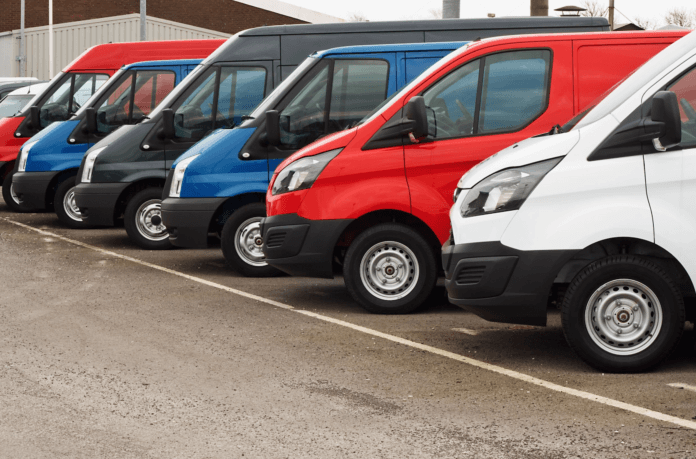by constructaquote - 5 May 2017


Buying a used van is an important step for any small business, whether you’re purchasing your first vehicle or adding to your existing group of commercial vehicles. Here’s the steps you need to take to purchase a vehicle that will be a positive investment for your small business…
There are many different aspects you should consider before you buy a used van for your small business. Firstly, you need to decide what size of van is necessary for your day to day business tasks and your budget for the vehicle. A large van will obviously provide more carrying capacity, but it’s also likely to generate more outgoing costs in fuel, tax and insurance. Therefore, you should ensure you buy the correct van size for the contents you’ll be carrying and only invest in a large van if it’s essential for your company’s requirements.
You should additionally consider if you require extra features such as roof racks or ladders as you could save money by purchasing a van with these already included. Secondly, you should determine the engine size you will need. Vans with larger, more powerful engines are more cost efficient if you’ll be driving regularly on the motorway. However, smaller engines and more compact vehicles are ideal for easy and affordable city driving.
Ebay, local papers and specialist used van dealers are all great places to begin your commercial van search. Here, you can search through thousands of pre-owned vehicle listings to find the van that’s right for your business. Ensure you allocate an adequate vehicle budget so the van you purchase is an efficient and reliable choice to deliver your services to your customers. There can be vast differences in the prices advertised for used vans so it’s essential you do your research.
Firstly, decide your budget, taking into account all of the necessary features you need for your commercial vehicle and the mileage you’re willing to consider. Then, search for vans meeting your requirements to find the typical price range. In addition to vans being too highly priced, beware of deals which seem a little too good to be true. Regardless of the price, always view the van in person to ensure it fits its advertised description and will be a sensible purchase.
When you’ve narrowed your choices down to a couple of used vans you’re considering, it’s also vital you conduct a test drive before purchasing. You should make sure you check that your insurance or the seller’s insurance covers you for testing the van. If you’re inexperienced with buying a commercial van, you should take along a knowledgeable friend if possible.
There are several areas of the vehicle you need to check are in full working order before you make your purchasing decision. Most importantly, you should test the brakes, the seatbelts and the engine to ensure the van is safe to drive. It’s essential you drive the van when the engine is cold as some unscrupulous sellers may warm the engine to hide initial starting issues. You should also look out for smoke or strange engine sounds which could be signs that the van is in poor condition.
It’s also best to test drive the van on an empty road where you’re not restricted by passing cars. Here, you’ll have the opportunity to test the van’s basic functions, including the responsiveness of the steering, the air conditioning and heating system and the lights for signs of dimming and flickering. You should additionally check through the gears to ensure they transition smoothly and adequately test the brakes to see how the van responds to an emergency stop. Tyres should also be observed to ensure the sidewalls are undamaged and the treads meet the UK’s legal requirement of 1.6mm or more.
Genuine and honest vehicle sellers will have no problem with your making important checks to protect your investment before purchasing. You should ask the seller to see the van’s full service history, in addition to receipts for work undertaken on the vehicle. This will help to verify the information they have given you and limit potential future problems.
You can also check the van’s watermarked logbook matches its registration and vehicle identification number and authenticate the vehicle’s details on the DVLA’s website to further protect yourself. You could even pay a professional to conduct a full mechanical test of the van on your behalf so you’re assured your investment is a wise one.
Legally, The Consumer Rights Act, 2015 covers you in the event that the seller does not disclose a severe fault with the vehicle before the sale. If a serious issue arises with the commercial vehicle and you can provide evidence that the seller did not provide you with honest information, you may have cause to claim a full or part refund. Paying by bank transfer with a detailed reference is also important to ensure you have a record of the sale in case of potential future problems.
In addition to a quality used vehicle, having the right insurance policy is also essential to safeguard your van’s contents and your company’s financial future.

by Charlotte Houghton - 7 October 2020
by constructaquote - 6 October 2020
by Charlotte Houghton - 29 September 2020
by Charlotte Houghton - 24 September 2020